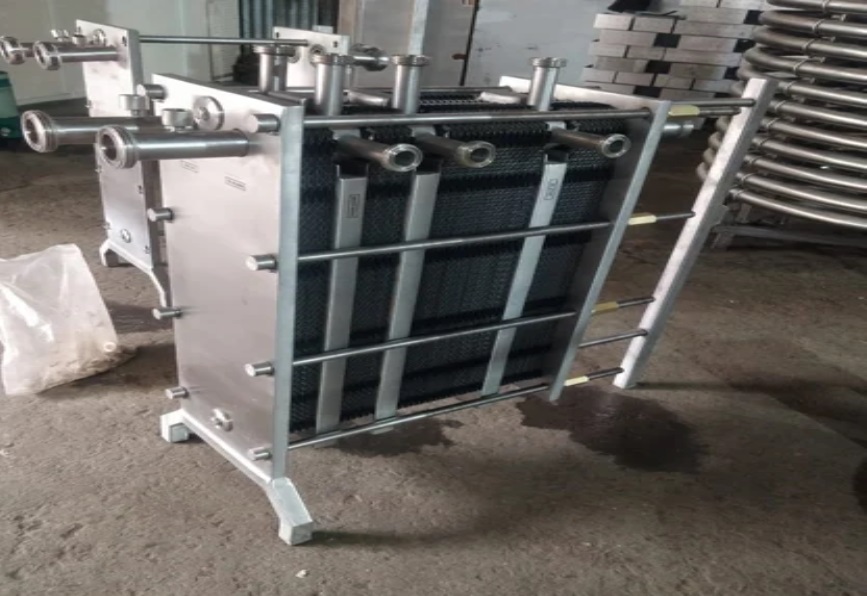In the realm of industrial equipment, where efficiency and precision are paramount, the advent of microchannel heat exchangers has marked a significant turning point. These innovative heat exchangers, characterized by their micro-sized channels, are revolutionizing industrial cooling processes. In this article, we delve into the profound impact of microchannel heat exchangers on industrial cooling systems, exploring their key features, advantages, and diverse applications.
Redefining Efficiency with Microchannel Heat Exchangers
Microchannel heat exchangers represent a leap forward in thermal management technology. Unlike traditional heat exchangers with larger channels, microchannel designs leverage the benefits of miniaturization to enhance heat transfer efficiency. The micro-sized channels provide a larger surface area for thermal exchange, facilitating faster and more effective heat transfer rates https://www.kaltra.com/microchannel-heat-exchangers.
Key Features of Microchannel Heat Exchangers
Enhanced Heat Transfer Efficiency:
The micro-sized channels in these heat exchangers play a pivotal role in boosting heat transfer efficiency. This results in rapid thermal response, making microchannel heat exchangers ideal for applications where quick and precise cooling is crucial.
Compact and Lightweight Design:
A defining feature of microchannel heat exchangers is their compact and lightweight design. This not only addresses space constraints in industrial settings but also contributes to cost savings by minimizing material requirements. The reduced size allows for more flexible integration into existing cooling systems.
Versatility and Customization:
Microchannel heat exchangers are highly versatile and can be customized to meet the specific cooling requirements of diverse industrial applications. Whether it’s for data centers, automotive cooling systems, or manufacturing processes, the adaptability of microchannel designs ensures tailored solutions for various thermal management needs.
Reduced Refrigerant Charge for Environmental Responsibility:
In an era where environmental sustainability is a priority, microchannel heat exchangers demonstrate a commitment to responsible practices. By minimizing refrigerant charge, these heat exchangers contribute to reducing environmental impact, aligning with global efforts to promote eco-friendly industrial technologies.
Applications Across Industries
Data Centers:
The efficiency of microchannel heat exchangers makes them indispensable in data center cooling systems. These exchangers play a crucial role in maintaining optimal temperatures for sensitive electronic equipment, ensuring the reliability and longevity of data center operations.
Automotive Industry:
In the automotive sector, microchannel heat exchangers are transforming cooling systems for engine components such as radiators and condensers. The compact design and enhanced heat transfer capabilities make them an ideal choice for managing thermal loads in vehicles.
Industrial HVAC Systems:
Microchannel heat exchangers have found a prominent place in industrial heating, ventilation, and air conditioning (HVAC) systems. Their adaptability to various configurations ensures precise temperature control and energy efficiency in industrial HVAC applications.
Manufacturing Processes:
Various manufacturing industries, including food and beverage, pharmaceuticals, and chemical processing, benefit from the specific cooling requirements met by microchannel heat exchangers. Their customizable nature makes them a preferred choice for optimizing cooling processes in diverse manufacturing applications.
The Future of Industrial Cooling
As industries continue to evolve and demand more efficient and sustainable solutions, the impact of microchannel heat exchangers is expected to grow. Ongoing research and development are likely to lead to further innovations, pushing the boundaries of what is achievable in industrial cooling technology.
Conclusion
The introduction of microchannel heat exchangers has undeniably revolutionized industrial cooling processes. Their enhanced efficiency, compact design, and adaptability make them a game-changer across various industries. Whether it’s ensuring the optimal operation of data centers, enhancing automotive cooling systems, or optimizing manufacturing processes, microchannel heat exchangers stand at the forefront of advancing industrial cooling capabilities. As the industrial landscape continues to prioritize efficiency and sustainability, the impact of microchannel heat exchangers on industrial cooling is set to shape the future of thermal management technology.

